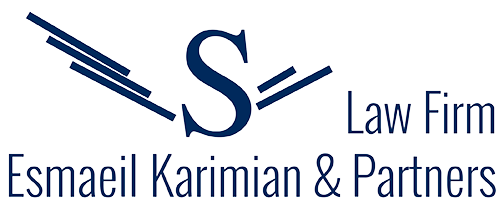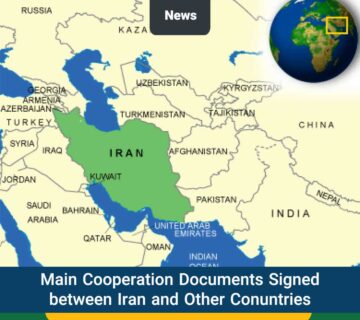In this article you will read:
Intellectual Property Rights & Technology in International Trade & Investment Agreements: Implementation & Termination Phases
1. Implementation Phase
One of the most important phases of the contract, in which intellectual property rights and technology are discussed, is the implementation phase.
At this stage, below issues are discussed:
the proper use of intellectual property rights and technology rights and monitoring how to exercise these rights;
the need to comply with industrial, technical and commercial standards in the use of these rights by the other party;
registration of these rights based on the protection laws of the host country;
prevention of abuse and infringement of these rights by third parties and, if necessary, filing a lawsuit against them;
providing technical and professional assistance, as well as providing skilled and specialized manpower during the implementation of the contract.
In addition to intellectual property rights and technology that are entered into the joint venture as a capital by one of the partners, one of the topics that mostly discussed and agreed upon by the partners in research and development of joint ventures is intellectual property rights and a new technology that may be acquired during the execution of the contract.
According to a category in terms of acquisition time especially in joint ventures, intellectual property and technology rights are divided into Background Intellectual property Rights and Foreground Intellectual Property Rights.
Background Intellectual property Rights include rights acquired by one of the partners before or during the execution of the joint venture contract, but independently of the joint venture operation.
These rights are entered into a joint venture in the form of non-cash capital by one of the partners.
In contrast, Foreground Intellectual Property Rights are rights acquired during the implementation of the joint venture, either by one of the partners or through their joint and collective efforts. Regarding
the previous type of IP rights, there are many complex issues, such as ownership, operation, management, maintenance, and transfer of these rights, which should be clarified in the joint venture contract.
In addition to “research and development joint ventures”, the issue of ownership of Foreground IP rights and technology may be raised in other joint ventures.
The contract may stipulate that these rights, which are created in connection with the joint venture operation by the employees or contractors of one of the partners and independently of the others, belong exclusively to that partner.
In the absence of such a clause in the contract, the matter must be determined in accordance with the provisions of the law governing the contract. There are different views on this issue in the laws of different countries.
Based on Iranian law, sole ownership is presented at two levels:
1. between joint venture partners;
2. between the joint venture partner and his employee
Under Article 5 of the Iran Patents, Industrial Designs and Trademarks Registration Act (2008): “If two or more persons have jointly made an invention, the right to the patent shall belong to them jointly.”
The opposite meaning of the above article is that if the invention is not created as a result of the joint activity and operations of individuals, it will belong solely to the person who created it. Accordingly, the rights arising from the invention created as a result of the activity of one of the joint venture partners belong only to the said partner and the other partners do not have any shares in these rights.
However, if the invention is created as a result of a collective effort of the partners, these rights belong to all joint venture partners.
On the other hand, according to paragraph (e) of Article (5) of the above Act, “Where an invention has been made in execution of an employment contract, the economic rights to the patent shall belong to the employer unless otherwise provided for in the respective contractual agreement.”

In addition to determining the status of ownership of Foreground IP rights, the contract must contain the clauses
in association with transfer, exploitation, operation, as well as mechanisms to protect these rights.
The exploitation of these rights includes the assignment or licensing of these rights, their use in the cycle of manufacturing, production, development, sale, distribution, etc. by an agreement of the partners, the exercise of these rights may or may not be limited to certain cases.
In the absence of such an agreement, the matter must be determined based on the provisions of the law governing the contract. There are different views on this issue in the laws of different countries.
Under paragraph (b) of Article (5) of the Iran Patents, Industrial Designs and Trademarks Registration Act (2008):
“If two or more persons have jointly made an invention, the right to the patent shall belong to them jointly.”
On the other hand, Article (581) of the Civil Code, stipulates: The operations of each of the partners who act outside their authority or without authority are considered as unauthorized acts and come under the provisions relating to unauthorized transactions.”

Regarding the transfer of joint intellectual property rights & technology, there are usually restrictions in the contract and the transfer of these rights (both assignment and license) is subject to the consent of other partners. However, in the absence of such agreement, if Iranian law governs the joint venture agreement, according to Article (583) of the Civil Code: “Each one of the partners may, without the consent of the other partners, transfer to a third person the whole or a part of his share.”
One of the most important issues regarding the joint intellectual property rights & technology is the protection mechanisms and prevention of infringement of these rights by third parties. In some cases, the partners register the invention as a patent and obtain the exclusive right to use it for a certain period of time, and sometimes without registration, by keeping these rights confidential, they enjoy the privileges of trade secrets.

2. Termination Phase
One of the major issues that the contracting parties encounter when the contract is expired or terminated for any reason whatsoever, is to determine the status of intellectual property rights and technology either Background or Foreground.
In some cases, the contract may end unexpectedly and as a result of the bankruptcy of one party or the occurrence of force majeure.
In such a situation, it is usually foreseen in the contract that, the intellectual property rights and technology that have been entered into the joint venture by one of the partners either under a license agreement or assignment agreement, will immediate licensed back or immediate assigned back to the licensor or assignor.
On the other hand, Intellectual property rights or technology entered into the joint venture by one of the partners as a non-cash capital, will be returned to the owner or licensor of the rights upon termination of the joint venture.
If the intellectual property rights and technology have been acquired during the implementation of the joint venture and in line with the joint venture operation (Foreground IP rights), upon the termination of the joint venture, each partner will remain the joint owner of these rights in proportion to his shares in the joint venture.
Our team is composed of highly skilled and versatile lawyers who combine practical experience and academic knowledge of their field. Most of our practitioners have worked in different professional environments, often outside their home jurisdiction.





No comment